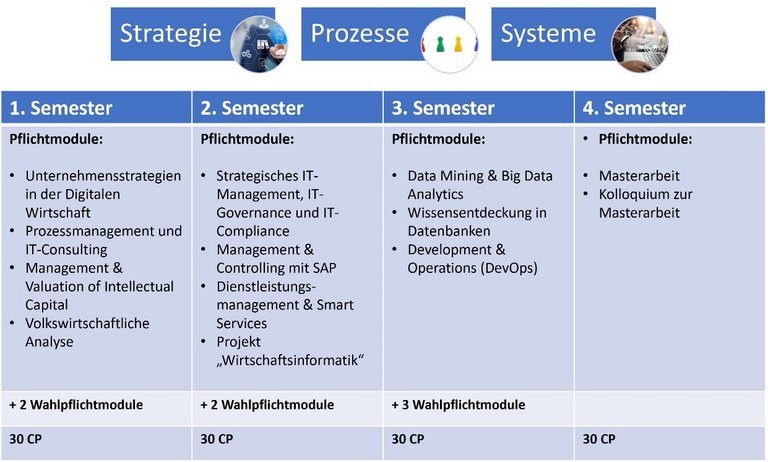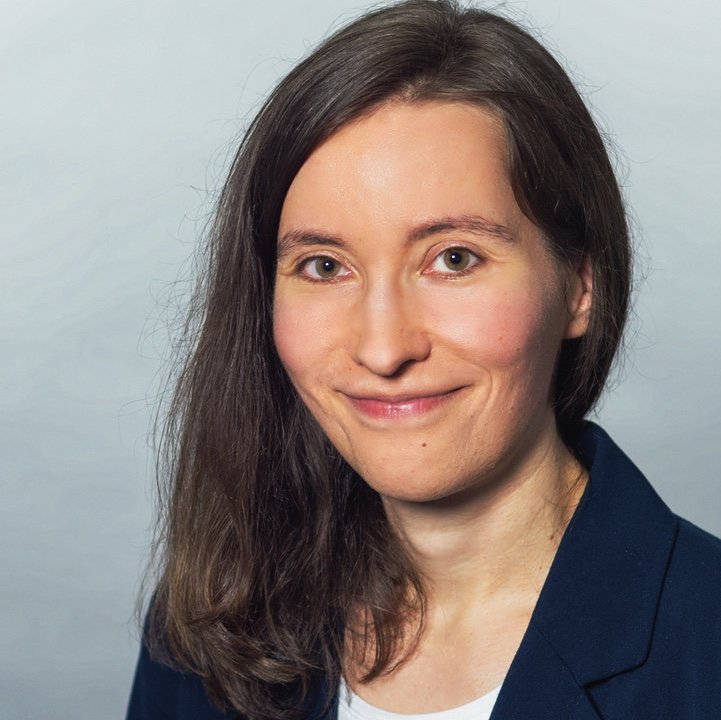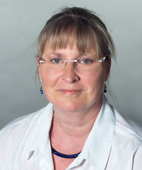Business Informatics & Digital Transformation (M.Sc.)
A Master's degree program for graduates of a Bachelor's degree program in Business Informatics, but also for computer scientists and career changers with knowledge of computer science, which deepens knowledge already acquired in relation to business and society and qualifies students to play an active role in shaping digital transformation processes.
Educational goal
The aim of the Master's degree course is to prepare students for their tasks as future decision-makers and to enable them to recognize and evaluate the potential of technologies and to actively shape the associated transformation of the company. This opens up a wide range of career opportunities in various sectors of the economy, including technology companies (development of IT solutions), user companies (use of IT solutions), consulting firms and public administration. Important social skills for managers are also taught.
What makes studying at Schmalkalden University so special?
Schmalkalden University offers prospective business informatics students excellent study conditions thanks to an interdisciplinary study program, state-of-the-art laboratories for teaching and research, an international flair, a very good student-to-staff ratio and short distances on campus. Unlike at many other universities, the Business Informatics course in Schmalkalden is part of the Faculty of Computer Science. This gives students the unique opportunity to discover and experience the world of their discipline "live" in state-of-the-art laboratories. At the same time, they have the opportunity to turn their own ideas into reality, e.g. in the form of prototypes.
The following labs are available, among others: "Business Informatics Lab (OMILAB Node Schmalkalden)", "Driving Simulation Lab", "Virtual Reality Lab", "Video/Content Production Lab" and "Social Media Lab".
At a glance
| Study form | Full time |
|---|---|
| Study duration | 4 semester |
| Teaching language: | predominantly German |
| Graduation | Master of Science |
| ECTS | 120 |
| Study start |
In winter term |
| Application period |
1st of April - 15th of July |
⚠️ A possible extension of the application period will be announced in the news and on social media channels ⚠️
Documents for download
Course of study
The four-semester Master's degree course in Information Systems & Digital Transformation is an application-oriented course that combines content from business informatics, computer science, business administration and related disciplines such as economics. The compulsory courses in the first and second semesters deal primarily with strategic and process-related issues relating to the use of information systems (IS) and new technologies.
From the third semester onwards, these aspects are supplemented by skills in the design of application system architectures, data mining and big data analysis and agile software development. From the first semester and increasingly in the third semester, you also have the opportunity to choose electives such as Information Visualization or Social Media Analysis based on your personal interests and hone your individual profile.
The course concludes with the preparation and defense of the Master's thesis in the fourth semester. Throughout the course, the aim is to build on a theoretical knowledge base and show you the direct application of what you have learned, which enables direct application in practice (e.g. through projects, case studies, PC pool exercises, use of current software packages such as SAP S/4 HANA, ARIS, etc.).
The course of study at a glance

Overview of elective modules
- E-Business
- Mobile Business
- Mobile Systems
- E-Government - Modernization of administration through digitalization
- Software-supported management of application system architectures
- Text Analysis & Data Search
- Social Media Analysis
- Information Visualization
The admission requirements for the Master's degree in Business Informatics and Digital Transformation are fulfilled by those who have successfully completed the Bachelor's degree in Business Informatics or have a comparable undergraduate degree from a state or state-recognized university.


![Franca Kröger-Pfaff [Translate to English:] Bild von Franca Kröger-Pfaff](/fileadmin/portal/Bilder/Personen/Hochschulkommunikation/Franca_Kroeger-Pfaff.png)


